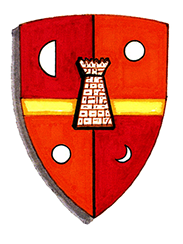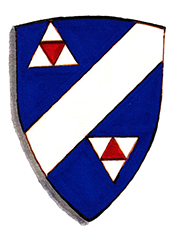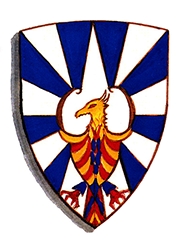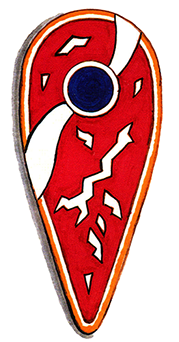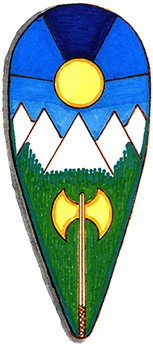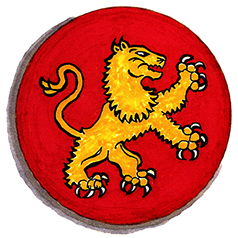
Welcome, Traveler.

About Chasing Fate: A Snowdragon's Odyssey
The Story
When Lorgi hatches, a seer divines fate from his shell: one day he will bring doom to his own kind, the Álukois (snowdragons). Rejecting prophecy, his mother tells Lorgi he has the power to create good luck. Abducted by a wicked sorcerer, stung by a deadly beast, and swept across the Continent by warring hordes, he fights to save human friends made on the way. Barely surviving her own battle, his mother must put aside her disdain for hyúlems (lowlanders) in her quest to find Lorgi. Both dragons’ struggles change the world. Some evils are turned to good. Using dragon strength and human ingenuity, Lorgi defeats an enemy that had been invincible to both!
What it is Not!
Not based on any other’s work, my novel is not like Rowling, Tolkien, or magic-driven. No elves, trolls, goblins, “shadows” or wizards rule here, but cultures and creatures of my own design. Characters believe sorcery or fate cause outcomes, yet it is their own actions. Knowledge, cooperation, skill, brute force, creativity and persistence brew surprising ends. Written mainly for adults, this story still avoids gratuitous violence or profanity.
Roots
Lorgi’s epic adventure fantasy takes place on “the Continent,” with its own geography, history, cultures and species. Collectively, the Yeti, Bigfoot and “Nessie” inspired the Álukois—not stereotype dragons. Even that word insults, meaning bandit or pirate in Álukop, their written language. Álukois love winter sports, star-gazing, socializing, snacking (i.e., feasting) and beer! They are vegetarians, but ferocious in defending friends, land and honor.
Themes
This tale explores human behavior, especially from an Álukoi perspective. Culture shock, moral dilemmas, prejudice, adaptation, revolution, kindness and faith play throughout. Can the stubborn Álukois adapt to survive? Can humans tolerate non-humans if they can’t stand each other? Personal determination trumps fate, adversity, magic, and tradition. Shared knowledge is power. Evil hastens its own demise. Good grows. People and words evolve across cultural divides. One word (gánsi = thank you) can move mountains—like love.
Gánsi méni, góbo nóshuls, yi góbo árgosangs!
“Many thanks, fine snacks & adventures!” ~ Lorgámon of Tiefenbo

Heraldry
Imperial Shohan
Kingdom of Kitria
Puchakta
Gran Vazuk
Klimgu
Kingdom of Laskomia
Imperial Shohan
Lendicheza
Capulchek
(Akromilot)
Laskomia
Old Nordhost
Ancient Tharidun
Kitrian Infantry
Dolanzia Islands
Lendish
Navy
Outlander
(free knight)
Berserker
Tuzanchim
Rebel
500 Lakes (coalition)
Webrish
South Akromilot
(free knight)
North Akromilot
(free knight)
Ancient Suldish Empire
Ancient Miters
Gruneborg

Music
Wenji’s Theme
Music by Gordon Lazarus, Orchestration by Patrice Williams
A smart, beautiful orphan, Wenji had lived most of her 22 years as a frequently traded and abused slave. Suddenly thrust into a completely new world after meeting the snowdragon child Lorgi, she teaches him what real human suffering is all about, while he shows her the power of true friendship, thinking “outside the box” and having faith in herself. Together they overcome terrible dangers, thereby helping to bring about the fall of powerful enemies.
Tuzanchim Good Luck Dance
Music by Gordon Lazarus, Orchestration by Patrice Williams
In this superstitious horse-warrior culture, friends, relatives, or entire armies do not part without first wishing each other good luck, in ceremonies complete with songs, dances, exchanging token gifts, food, and much consumption of alcoholic beverages! One should always allow at least a few hours for a “proper farewell” (if not a whole night of revelry), in order to bestow the most luck possible on all present.










